
London Review of Books (LRB) – March 27, 2024: The latest issue features Brandon Taylor – Two Years With Zola,,,

London Review of Books (LRB) – March 27, 2024: The latest issue features Brandon Taylor – Two Years With Zola,,,
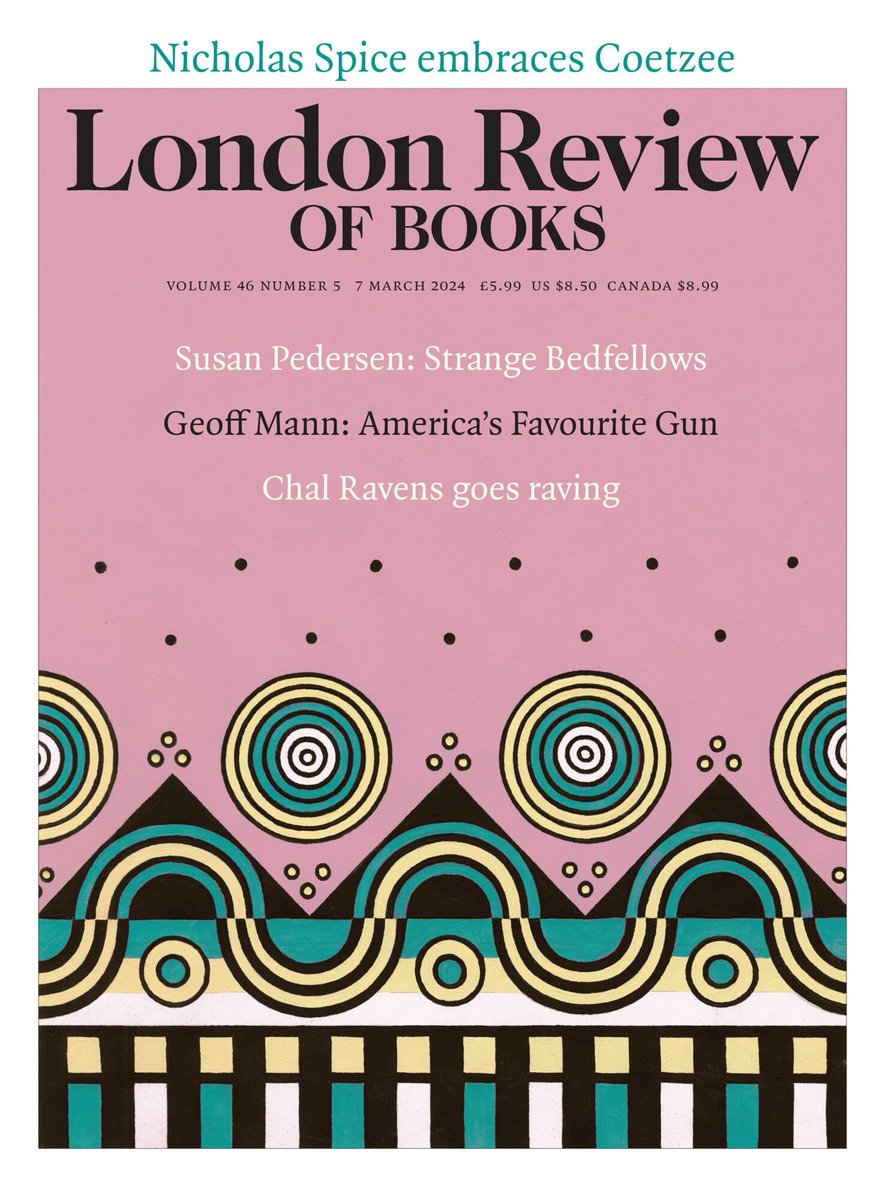
London Review of Books (LRB) – February 1, 2024: The latest issue features Mothers and Others – ‘The Pole’ and Other Stories by J.M. Coetzee….
By Adam Smyth
Sometimes we ignore a book’s material presence: absorbed, ‘good’ reading is often figured as a forgetting of the material conditions of book, body, room and time, even though these conditions affect how we read. With certain other books it makes no sense to separate text from object.
Bibliophobia: The End and the Beginning of the Book
by Brian Cummings.
By Geoff Mann
There are seventy million more privately held guns in the US – around four hundred million of them – than there are people. AR-15s comprise about 5 per cent of the total, but it is currently the best-selling rifle in the country.
American Gun: The True Story of the AR-15
by Cameron McWhirter and Zusha Elinson.
Gun Country: Gun Capitalism, Culture and Control in Cold War America
by Andrew C. McKevitt.
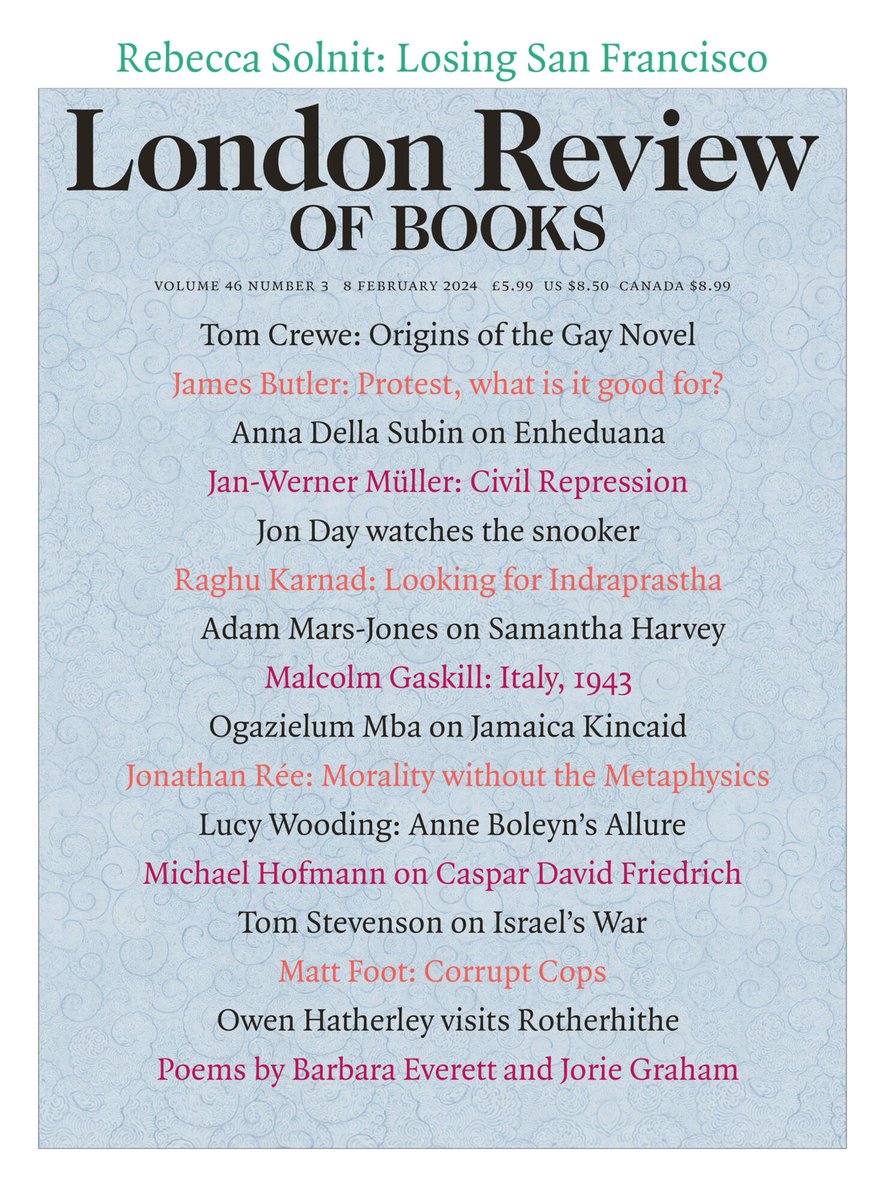
London Review of Books (LRB) – February 1, 2024: The latest issue features Origins of the Gay Novel; Protest, what is it good for?; Poems of Enheduana; Caspar David Friedrich, Israel’s War and more….
By James Butler
If We Burn: The Mass Protest Decade and the Missing Revolution
by Vincent Bevins.
The Populist Moment: The Left after the Great Recession
by Anton Jäger and Arthur Borriello.
Enheduana: The Complete Poems of the World’s First Author
by Sophus Helle.
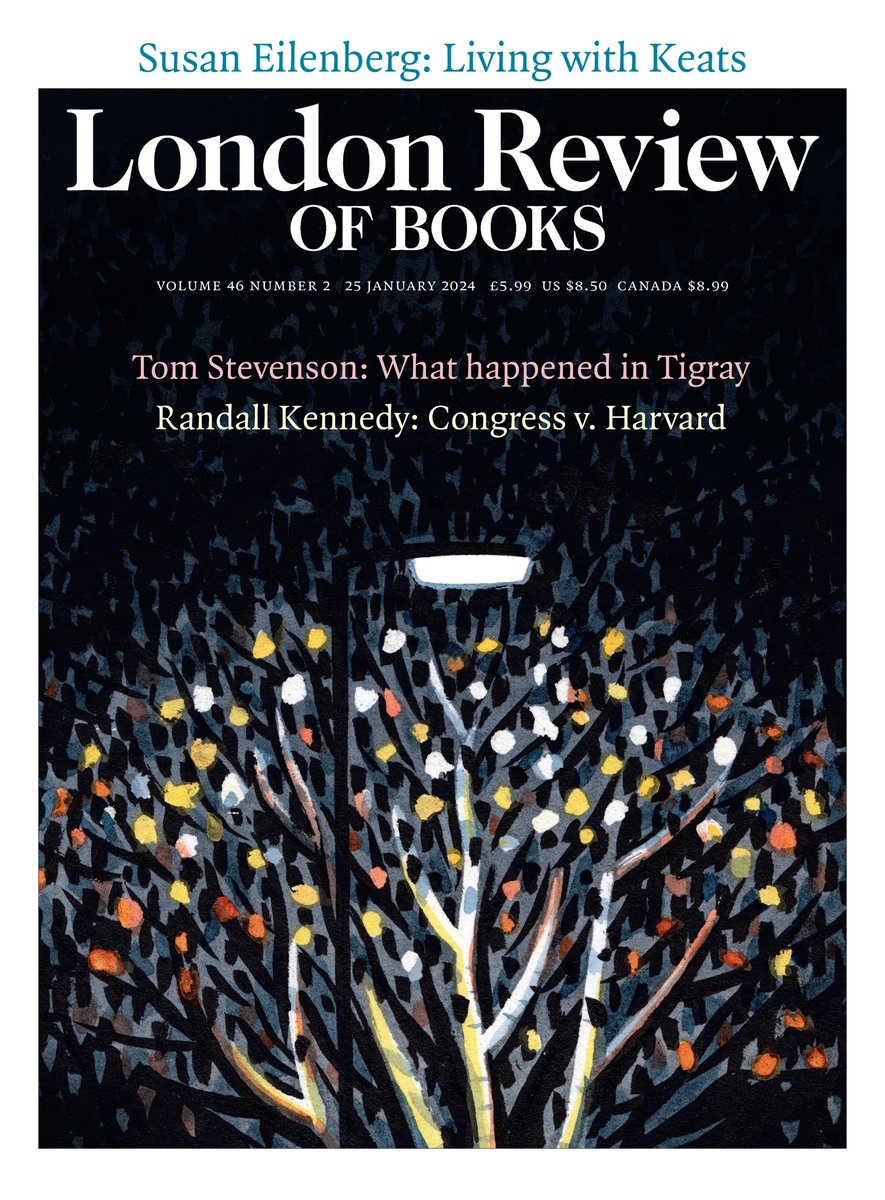
London Review of Books (LRB) – January 17, 2024: The latest issue features ‘Living With Keats’ – A Brief Life in Nine Poems and One Epitaph; Congress vs Harvard; The West’s Fight to Reverse the Russian Revolution, and more…
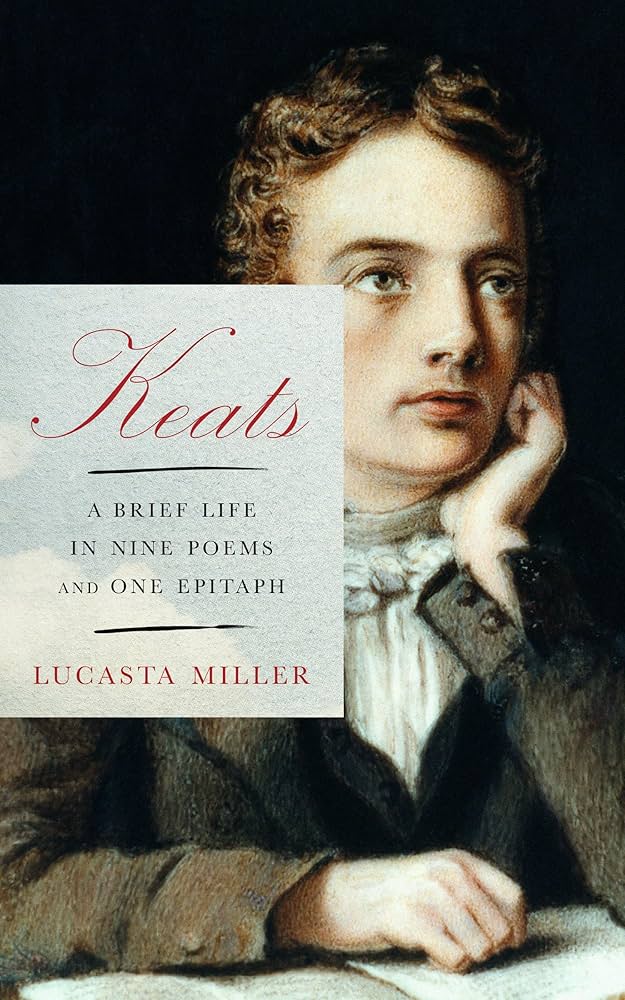
Keats: A Brief Life in Nine Poems and One Epitaph
by Lucasta Miller.
Keats’s Odes: A Lover’s Discourse
by Anahid Nersessian.
Looking back to September 1820, when things had gone badly wrong but not yet so grotesquely as to be visibly beyond repair, we can see how few and how poor Keats’s options were. Surely it was better that (in the absence of other volunteers) the young artist Joseph Severn agreed to travel with the dying poet to Rome that autumn than that he had refused.
A Nasty Little War: The West’s Fight to Reverse the Russian Revolution
by Anna Reid.
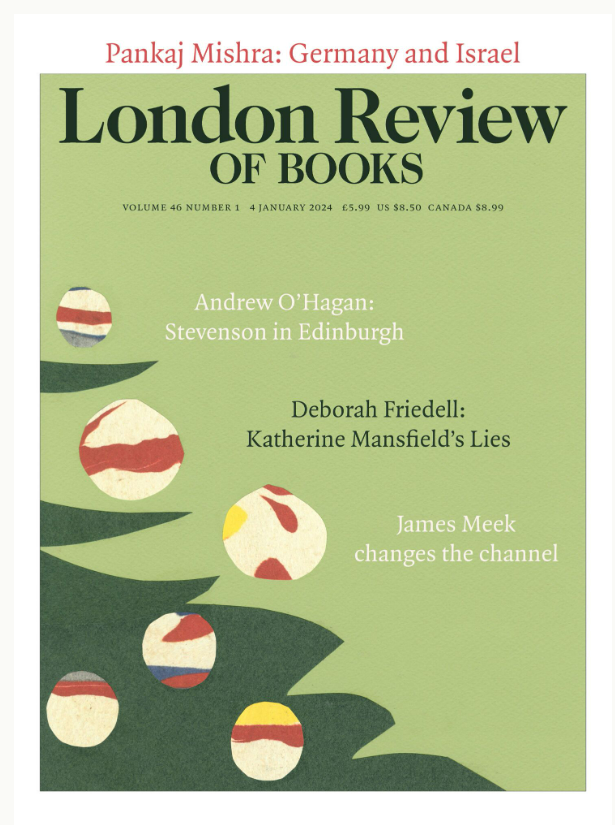
London Review of Books (LRB) – December 20, 2023: The latest issue features Stevenson in Edinburgh; Katherine Mansfield’s Lies; James Meek changes the channel, and Israel and Germany…
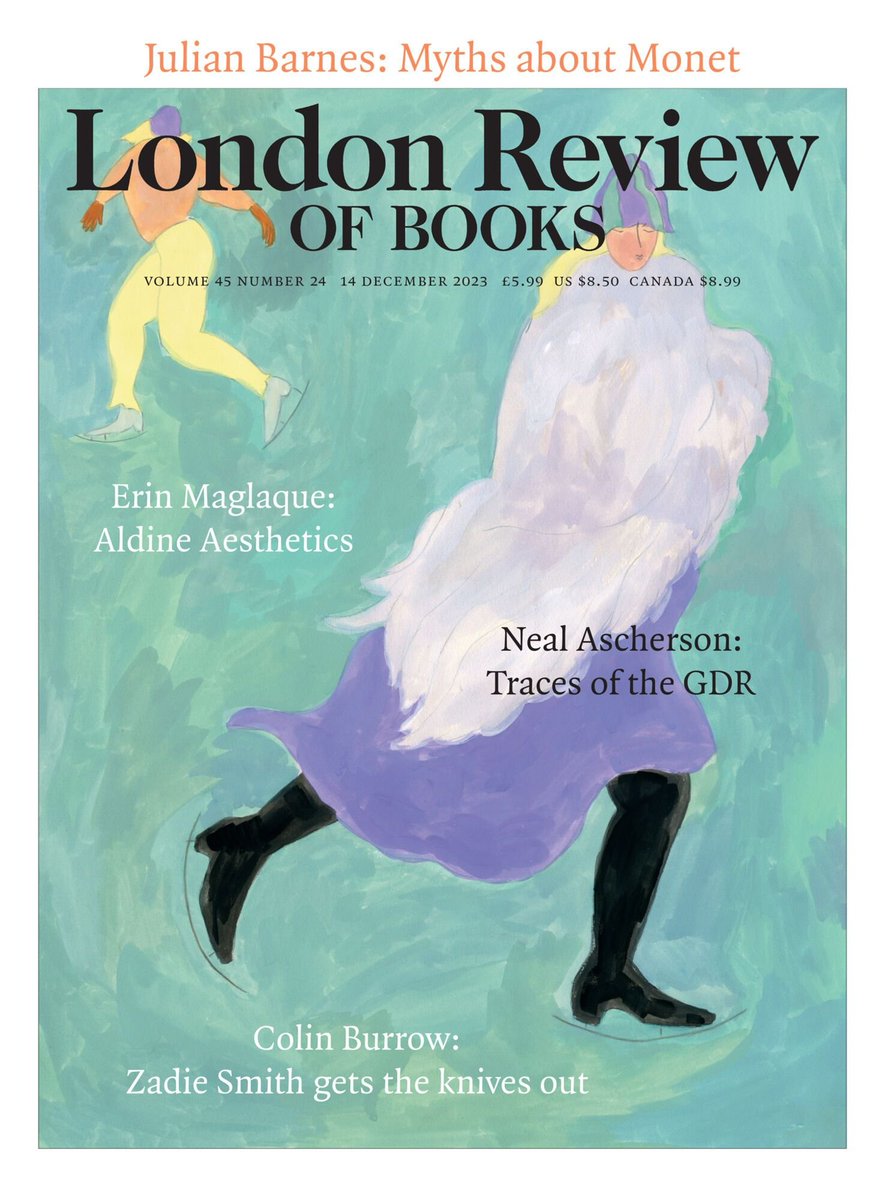
London Review of Books (LRB) – December 7, 2023: The latest issue features Monet: The Restless Vision; Aldus Manutius – The Invention of the Publisher; The Fraud by Zadie Smith and Capitalism and Slavery…
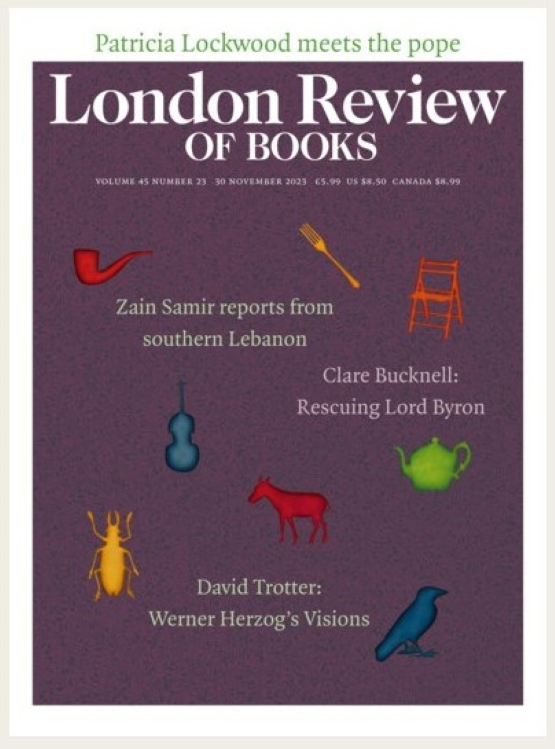
London Review of Books (LRB) – November 30, 2023: The latest issue features Jaqueline Rose on violence and its origins; Zain Samir reporting from Southern Lebanon; Clare Bucknell – Rescuing Lord Byron; David Trotter – Werner Herzog’s Visions, and more….
Jacqueline Rose on violence and its origins
In response to the destruction of Gaza, it seems to be becoming almost impossible to lament more than one people at a time. When I signed Artists for Palestine’s statement last month, I looked for mention of the atrocities committed by Hamas against Israeli Jews on 7 October, and then decided to settle for the unambiguous condemnation of ‘every act of violence against civilians and every infringement of international law whoever perpetrates them’.
‘Little Boy’ exploded over Hiroshima at 8.15 a.m. on 6 August 1945, wiping most of the city off the face of the earth and killing eighty thousand people instantly. But the ‘shock’ to the leadership in Tokyo envisaged by the former US secretary of war Henry Stimson failed to materialise.
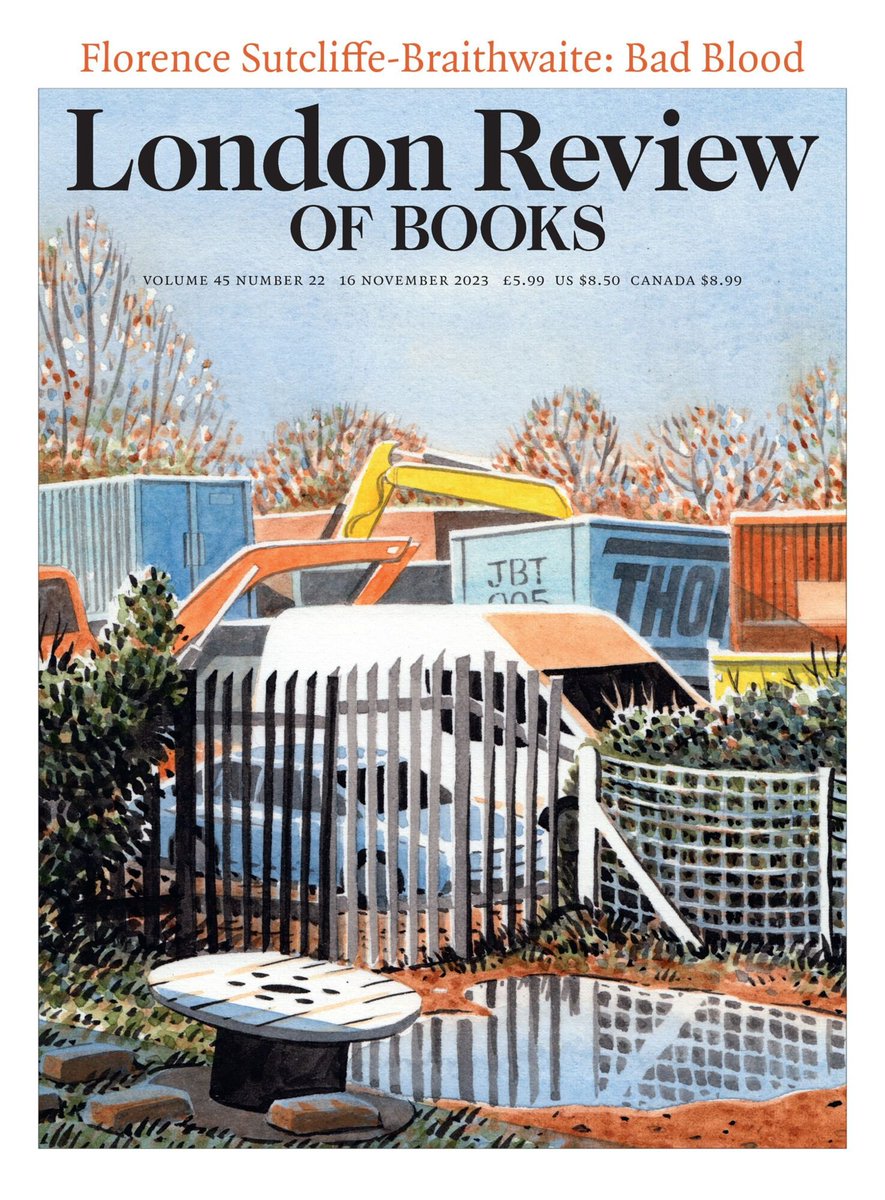
London Review of Books (LRB) – November 16, 2023: The latest issue feature The Inside Story of the NHS Infected Blood Scandal; Elizabeth Taylor’s Magic; The UK government has become increasingly hostile to Freedom of Information requests on arms, and more…
‘In the UK between 1970 and 1991, about 1250 people with bleeding disorders were infected with HIV (and many of them with Hepatitis C, too); by the time the Infected Blood Inquiry began, about three-quarters had died, the majority of them from HIV-related causes.
By Florence Sutcliffe-Braithwaite
The Poison Line: A True Story of Death, Deception and Infected Blood
by Cara McGoogan.
Death in the Blood: The Inside Story of the NHS Infected Blood Scandal
by Caroline Wheeler.
‘Nearly eighty years after she first starred in a film, Taylor is famous for two things: her intense screen beauty and her many marriages (eight of them, two to Richard Burton). But at least as central to her life were her close and enduring friendships with men.’
By Bee Wilson
London Review of Books (LRB) – November 2, 2023: The new issue features After the Flood – Amjad Iraqi on the ‘regime change planned for Gaza and the carnage it entails; SBF in the dock and Emily Witt on Teju Cole….
The Israeli government is taking a leaf out of Ariel Sharon’s playbook to try to undo what it regards as Sharon’s biggest mistake. This essay is on the ‘regime change’ planned for Gaza, and the carnage it entails.
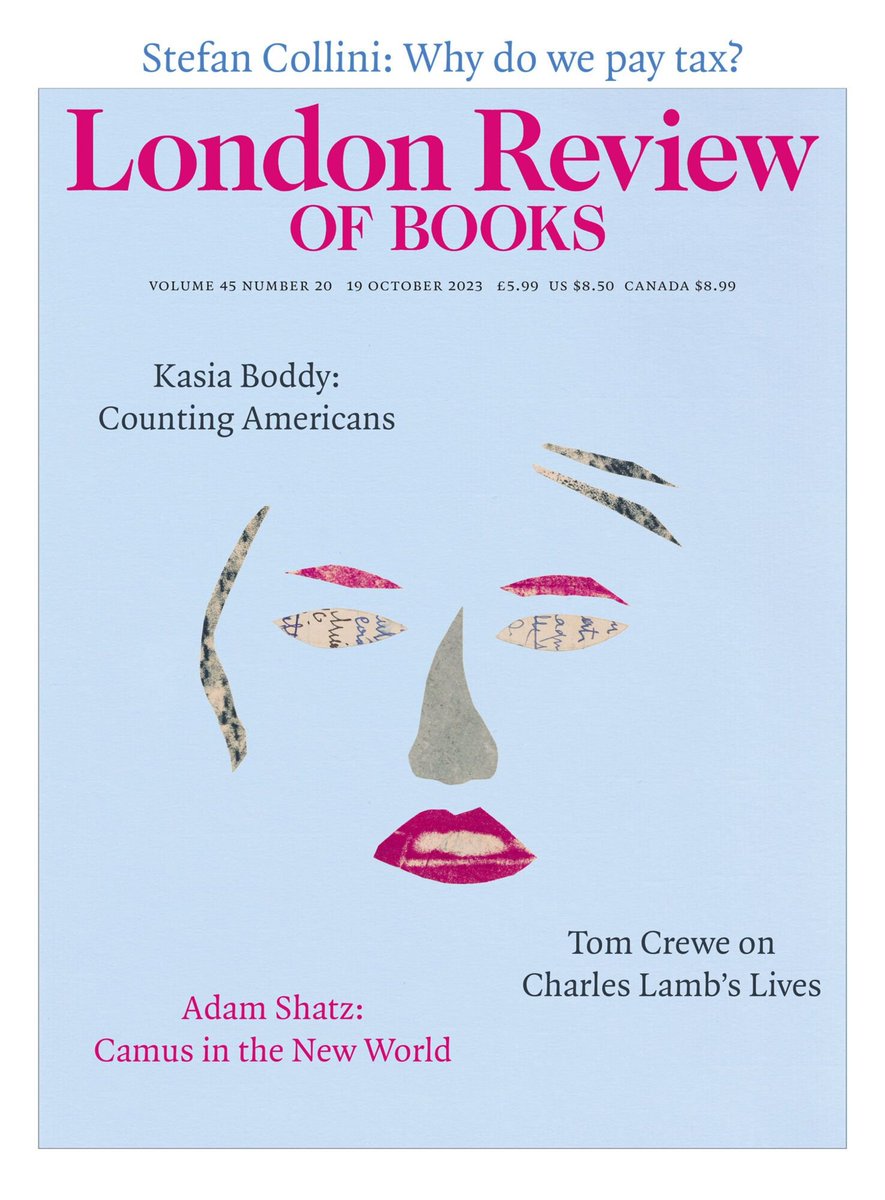
London Review of Books (LRB) – October 19, 2023: The new issue features Camus in the New World; Charles Lamb’s Lives; The Dictionary People: The Unsung Heroes who Created the Oxford English Dictionary and At the Met: On Cecily Brown….